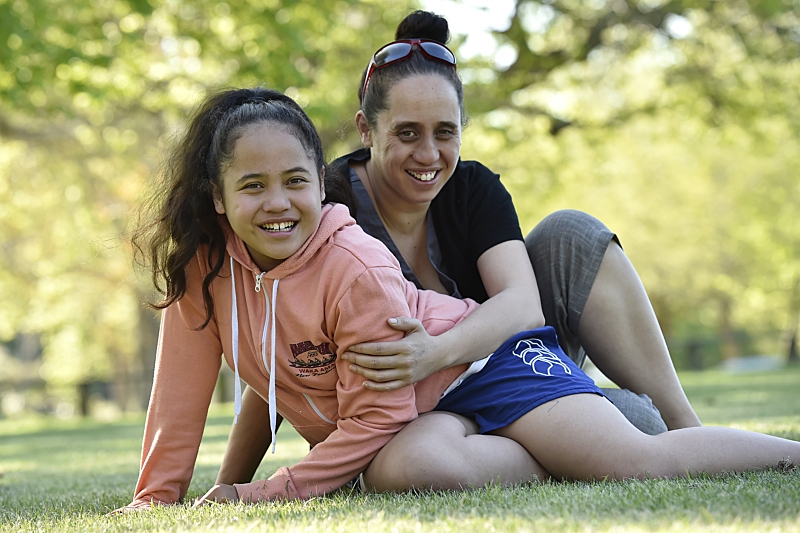Our daughter Tomairangi is 12 years old. She's been in hospital 89 times - that's 272 days of her life.
That makes you question things, like the amount of school she’s missed out on. Not just from an academic perspective, but everything else that she misses out on. She has friends—but these are friends for school. She never has enough time to develop her friendships. Never had a best friend. Doesn’t get invited to parties or birthdays. Never gets a visit from any of her friends while she’s in hospital. Friendships need time to grow, to nurture and deepen. You can’t really do that when you’re in hospital. Her best friends are probably the nurses and the play therapist.

My daughter’s asthma is classed as severe brittle. It’s unpredictable. It’s stubborn. It takes on a life of its own. It keeps trying to kill her, again and again. It nearly succeeded last year, but our daughter is strong, so resilient. When you have two respiratory arrests, and lose a cardiac output twice and need CPR for a total of 11 minutes and it still can’t take you, you’re superhuman. That day was the worst. I play it over and over in my head at times. The fear is always there. Stuff like that plays with your head and makes things so much harder to cope with. The post-traumatic stress is in all of us. Me, Tomairangi, my husband and our other children. Every time Tomairangi has a bad asthma attack, every time she looks at me with sheer panic in her eyes that she can’t breathe. Every time the phone rings and the caller ID says it’s either school or the hospital, my heart skips a beat, my stomach drops and I lose my breath.
When you have two respiratory arrests, and lose a cardiac output twice and need CPR for a total of 11 minutes and asthma still can’t take you, you’re superhuman.
We sleep in power nap mode with one ear always open. Every cough, every cry, every wheeze—I hear them all. We probably get two to three hours of uninterrupted sleep every night, from 1 to 3 am. In between those times it’s puffers, and drinks of water, breathing exercises and coughing up phlegm. It’s tears, and fears of not being able to breathe. It’s relentless.
Our other children manifest their fear in different ways. One misbehaves at school, starts fights, gets frustrated and angry and tearful. The other goes quiet. Doesn’t get in the way, doesn’t bother anyone, retreats back into herself. They’ve seen a lot over their few short years. Spent far too much time in hospitals. Their relationship with their sister is difficult. Like friendships, it’s hard to maintain a healthy relationship when one half is never there. So when they do end up all together, it’s chaotic. Laughs, fights, tears all in the space of a few minutes. It’s an extreme roller coaster of emotions and these kids don’t know whether to laugh and enjoy it or cry and get off the damn thing.
Work is very understanding. Allowing me the time I need to look after our daughter. My husband’s work not so. It’s the same with every manager he’s ever had. Sure they’re understanding and sympathetic to start with, really feel sorry for our situation. But then one absence turns into another and another and another, and then the questioning starts.
It’s not like this for every child with asthma, but it is like this for us. It’s a hard road to travel. But you know what? Through all of this our little family is so strong. We know what’s important and what isn’t. Determined to do what we can to give our daughter the life she deserves.
We’re excited by the prospect that a cure for asthma may be found in her lifetime. We hold onto that hope. So that she can be her own person and not someone defined by her medical condition.
If you or someone you know with a respiratory condition has a story to share, please email marketing@asthmaandrespiratory.org.nz and you could be featured here too!